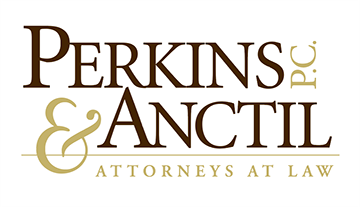The following is by David R. Chenelle, Esq.: The answer to this question was recently answered by the Norfolk Superior Court in the case of Board of Trustees of the Whitman Pond Village Condominium Trust vs. Jacquelyn Colligan et. al. (“Whitman”)Whitman, as a result of the unit owner’s failure to pay her regular monthly condominium fees, began a Lien Enforcement action pursuant to M.G.L. 183A, §6. As required by statute Whitman provided dutiful notice to the unit owner and all interested parties including the secured mortgage lender at that time, Bank of America (“BOA”). However, during the pending litigation the mortgage was subsequently transferred to the Secretary of HUD and then again to the portfolio of Wilmington Savings Fund (“Wilmington” or the “Bank”).
With no responses to its Lien Enforcement complaint, Whitman filed for and received a default judgement against the unit owner and her first mortgage holder. Whitman ultimately foreclosed on the unit. From the proceeds Whitman received its unpaid priority amounts due including all legal fees and costs associated with the prosecution of the Lien Enforcement action. Thereafter Whitman filed an interpleader in the Superior Court requesting of the Court to identify the appropriate parties entitled to the remaining funds. During the course of the interpleader, Wilmington intervened and filed its’ counterclaims for equitable relief alleging that the foreclosure was invalid! In its counterclaim, Wilmington alleged: 1) that M.G.L. 183A, §6 was pre-empted by Federal Law; 2) that Whitman failed to strictly comply with the statutory requirements, and 3) that the sale was not commercially reasonable as the high bid was less than the fair market value. In its first claim, that M.G.L. 183A, §6 is pre-empted by federal law, Wilmington’s argument could have had the potential consequence of stripping away the right of condominium associations to foreclose on those unit owners who failed to pay their condo fees. In its pleadings, Wilmington argued that the state statute was pre-empted by the Federal Distressed Asset Stabilization Program (DASP). Thankfully the Court dispensed with this claim finding that there was no conflict between the state and federal statutes! The Court further stated that §6 of the condo statute “specifically provides the first mortgagee with an opportunity to assume responsibility for the unit owners’ unpaid common expenses before the condo association is permitted to file any enforcement action”, which Wilmington or its predecessors failed to do! Next, the Bank argued that Whitman did not comply with the procedural requirements of M.G.L. c. 254 during its foreclosure. The Wilmington’s main point was due to having the original date of the foreclosure rescheduled. The Bank claimed that counsel for the association failed to re-publish the postponed date, but simply announced the postponement date at the originally scheduled date and time of the foreclosure. The Court dismissed that argument as well finding that the procedures used by Whitman were in accordance with the foreclosure statute, stating that an additional publication was not required. The Bank’s last challenge was the reasonableness of the foreclosure sale based upon the sale price. The Court found that a low price, by itself, does not lead to, or prove bad faith but requires more. The Bank having failed to provide further support for its claim that the sale was contrary to commercially reasonable lost its third claim as well. This was a significant win in the condominium association world in Massachusetts. Without the ability to foreclose on those unit owners that fail to pay their condominium fees and costs, associations as a whole could revert back to the times of wholesale unit owner defaults and then leading to significant financial distress. It is for these very reasons that M.G.L. c.183A was implemented! Going back would be an unacceptable result!
